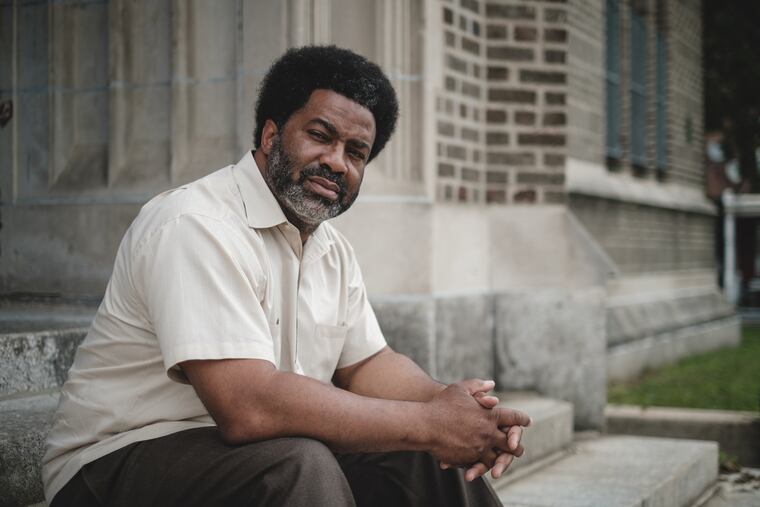School funding lawsuit verdict won’t fix our education system. Here’s what will.
If we think the state funding formula is the only thing broken at Pennsylvania schools, that’s like saying that all a broken-down car needs is a full tank of gas.

It took many years, but the courts have now ruled: Pennsylvania’s patently inequitable state education funding system, indeed one of the least equitable funding systems in the nation, is unconstitutional.
Too many of our communities — low-income Black and brown communities, rural communities, low-income suburban communities — are living with the fallout of generations of this inequity. From lower graduation rates and diminished career prospects, economic insecurity, and public safety challenges, the way we have funded schools in the Keystone State has built an architecture of haves and have-nots, of a fundamental injustice for far too many children, families, schools, and neighborhoods.
But all that will change now, right?
Unfortunately, no.
Judge Renée Cohn Jubelirer’s ruling is a sweeping and stinging indictment of the way the state allocates financial support to our schools.
“The consistency of [achievement] gaps over the variety of inputs and outputs leads to the inescapable conclusion that these students are not receiving a meaningful opportunity to succeed academically, socially, and civically, which requires that all students have access to a comprehensive, effective, and contemporary system of public education,” she wrote in her 786-page decision.
In ruling this way, Jubelirer makes a critical observation that shows us both the desperate need to create a just and equitable school funding scheme, but also how much more must be done to ensure that, as Gov. Josh Shapiro put it in his statement on the ruling, “every child in Pennsylvania should have access to a high-quality education and safe learning environment, regardless of their zip code.”
To achieve that vision of universal access to high-quality schools and safe learning environments, we’ll need a comprehensive overhaul of all parts of our education system.
“We’ll need a comprehensive overhaul of all parts of our education system.”
That starts with teacher preparation and development.
Schools need to prepare teachers to reach the kids they serve. The vast majority of our teachers are prepared by institutions where curricula and pedagogical frameworks are based on the work of white educators such as Horace Mann, John Dewey, and BF Skinner, instead of Black luminaries like Carter G. Woodson. Aspiring teachers are often left without the understanding of how their own unconscious bias shapes how they interact with Black, brown, and low-income students. As a result, many teachers are unable to develop, foster, and maintain relationships with these students. Research shows that white teachers have lower expectations for their Black students, which may be a direct result of this disconnect and social distance, and hinder those students’ academic success.
The organization I lead, the Center for Black Educator Development, is working to equip educators with the skills and cultural understanding they need to teach all children well and help them achieve. Despite our growth, our own reach is finite: Just over 2,300 educators attended our professional learning offerings last year. In a region where more than half of teachers say they are not prepared to lead a diverse classroom, we’ll need a significant increase in our scale to reach the more than 124,000 educators serving our state’s 1.73 million schoolchildren in public schools.
» READ MORE: Schoolhouse crumbling? That’s what you deserve, the Pa. GOP says. | Opinion
We’ll need to look at how we develop a curriculum that gives students the skills and learning opportunities they will need in order to build stable, productive lives in an ever-changing economy. All schools — not just those in high-income areas — must support student aspirations and expose them to potential careers early, so they have the understanding and pathway to pursue their passions and professional ambitions. Once students have identified potential career goals, schools need to be able to provide them with the skills they need to get there: either a four-year degree, industry-recognized certification, or other pathways to personal fulfillment.
If we think the state funding formula is the only thing broken at Pennsylvania schools, that’s like saying that all a broken-down car needs is a full tank of gas. It now ought to be able to run a race against well-oiled high-performance vehicles, right? The fuel — the funding — is just a part, albeit an integral one, of the problem.
Yes, we need more equitable, sustainable, and predictable funding, especially for schools serving students with greater needs, which Judge Jubelirer rightly noted are most often in our lower-income communities. But the court’s ruling does not totally absolve us from interrogating and restructuring the rest of the dysfunctional system, which keeps too many Black, brown, and low-income students in an endless cycle of low expectations and diminished futures.
This ruling is a resounding victory for good sense, reason, and the further pursuit of educational justice for all of our learners.
But it is merely the start of what must be an expansive and comprehensive transformation of our state’s entire system of public education.
Sharif El-Mekki leads the Center for Black Educator Development. He was a teacher and principal in the School District of Philadelphia and is the former principal of Mastery Charter School — Shoemaker Campus. He founded the Fellowship — Black Male Educators for Social Justice, is a member of the “8 Black Hands” podcast, and blogs at Philly’s 7th Ward.